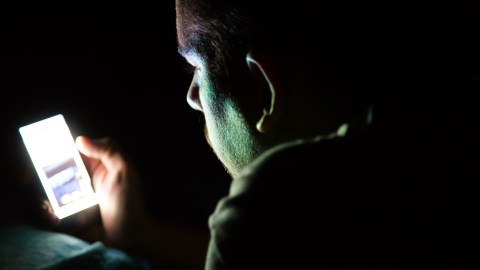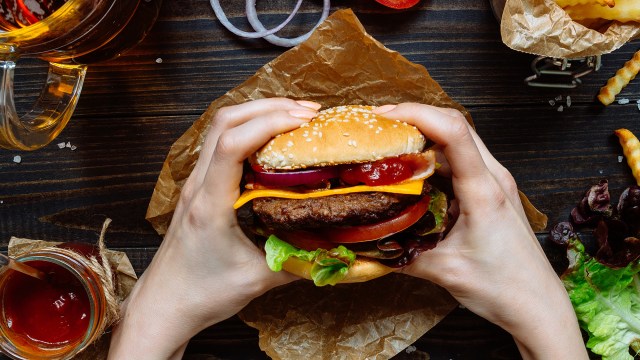College students choose smartphones over food, researchers find

Artur Debat / Moment Mobile / Getty Images
- An experiment out of Buffalo shows that students are willing to put off eating in order to look at their phones.
- The subjects were willing to pay ever increasing amounts of money to use their phones even as the price of food remained the same.
- The finding doesn’t prove phone addiction is a thing, but it makes it possible.
In a turn of events that should surprise nobody, researchers at the University of Buffalo recently discovered that college students would rather go hungry than be separated from their phones.
Though the study’s data gives us new evidence that smartphone addiction does, indeed, exist, it doesn’t quite settle the issue.
What does the study say?
In a series of tests where subjects had to choose to spend pretend money on time with their phones or food, they went with their phones by a shocking margin.
In the experiment, students were separated from their phones for two hours and had no food for three. At the end of the separation period, they were taken to a computer where they could complete a task to earn either time with their phone or a snack. After they chose what they wanted, the cost of their selection was increased the next time they were asked.
The cost of the items was measured in two ways: one test involved fake money, with minutes of cell phone use costing up to 1,000 dollars earned by computer tasks. The other test measured the cost in pure work, such as the number of mouse clicks needed to complete the required tasks to gain more phone time.
In almost every case, the amount that the students were willing to pay to use their phones outpaced the amount they would spend on food. The researchers stated they were, nevertheless, “very surprised by the results.”
What does that mean?
The press release claims this is the first study to suggest that smartphone use is a reinforcing behavior. That means that it is an activity with a positive consequence that causes an individual to want to do it again. While the researchers are quick to remind us that reinforcement is not identical to addiction, it is a prerequisite. They were also shocked to find that the subjects valued phone time over eating, which is also a reinforcing behavior.
Study lead author Sara O’Donnell explained,
We knew that students would be motivated to gain access to their phones, but we were surprised that despite modest food deprivation, smartphone reinforcement far exceeded food reinforcement across both methodologies.
So, am I addicted to my phone? I can stop anytime I want, I promise!
It is too soon to say that. Addiction is a medical term that implies several things. Just because people have a self-feeding drive to use their phones doesn’t mean they are addicted to their phone in the same way they are addicted to nicotine or alcohol. As always, more studies are needed.
This is still a great starting point for learning the answer to that question and even for understanding why some people use their phones much more than others. Sara O’Donnell explained that, “While reinforcing value does not equate to addiction, it seems likely that if smartphone addiction becomes a valid diagnosis, those individuals would have high smartphone reinforcement, just as individuals with alcohol use disorders have high alcohol reinforcement.”
Ask yourself, have you ever been willing to give up food in order to check your phone? It seems you aren’t alone if you have. While the jury is still out on if this means we can be addicted to the things, maybe taking a break isn’t a bad thing.





